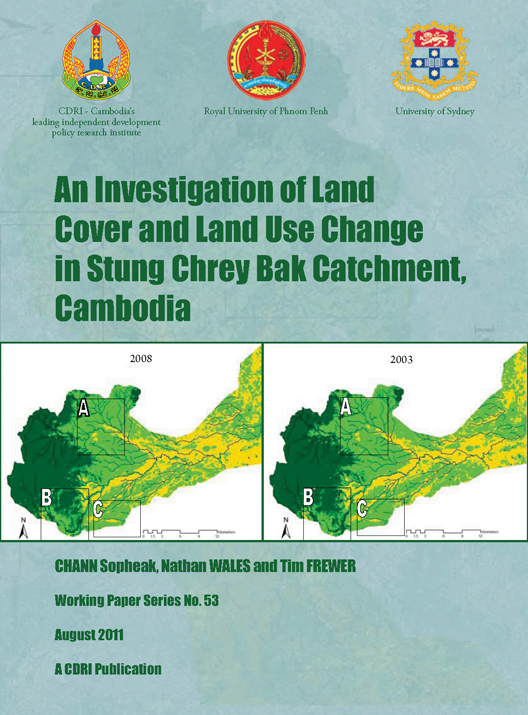
An Investigation of Land Cover and Land Use Change in Stung Chrey Bak Catchment, Cambodia
This study investigates land use and land cover (LULC) change in the Stung Chrey Bak catchment, Kompong Chhnang province, Cambodia, over the period 1989–2008. Using a mixed-methods approach that combines satellite remote sensing (Landsat and ASTER imagery) with field interviews and participatory mapping, the research identifies significant tran...

What Limits Agricultural Intensification in Cambodia? The Role of Emigration, Agricultural Extension Services and Credit Constraints
This paper attempts to define the factors which determine emigration and rice double cropping, i.e. rice cultivation on the same plot twice per year, by rural households in Cambodia, and investigates whether these decisions influence each other using data from a two-period panel survey of 231 households in three provinces in rural Cambodia. In...
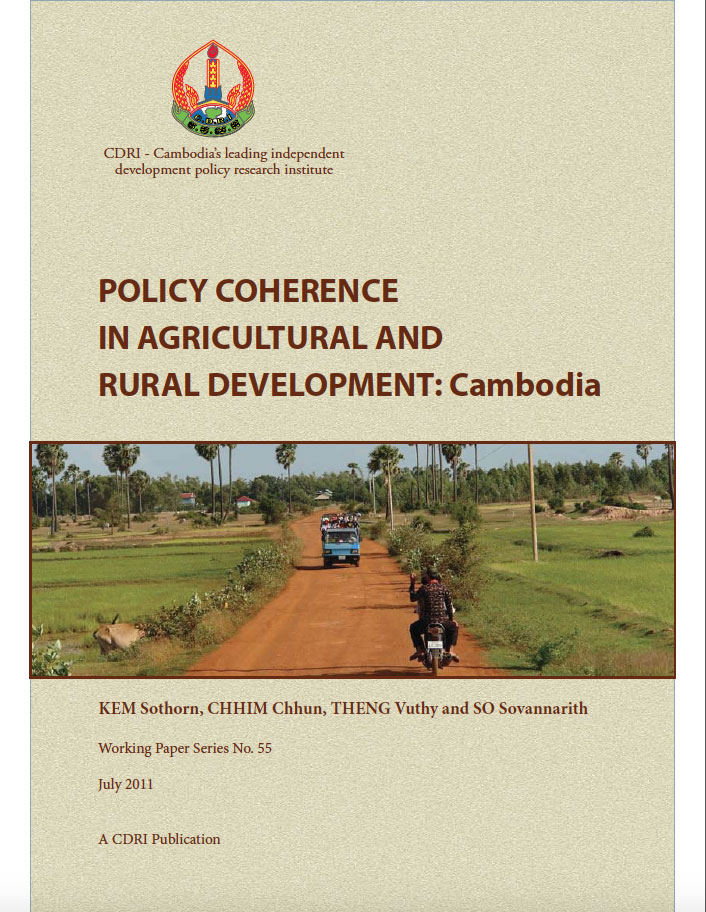
Policy Coherence in Agricultural and Rural Development: Cambodia
This paper presents the main findings of the Policy Coherence for Agriculture and Rural Development study. Policy Coherence for Development (PCD) is about making sure that policies for sector development do not contradict or undermine one another and that as far as possible, policies are complementary and create synergy. In practice, it is abo...
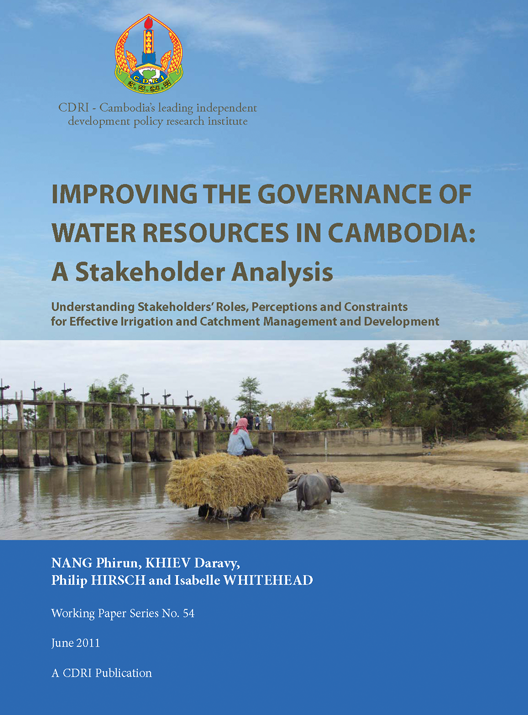
Improving the Governance of Water Resources in Cambodia: A Stakeholder Analysis
Irrigation development and management of water resources present serious governance challenges for many stakeholders in Cambodia. Farmers, government agencies, development organisations and the private sector all have a role to play, yet their roles and responsibilities are not always well defined. Contemporary ideas on water governance indica...
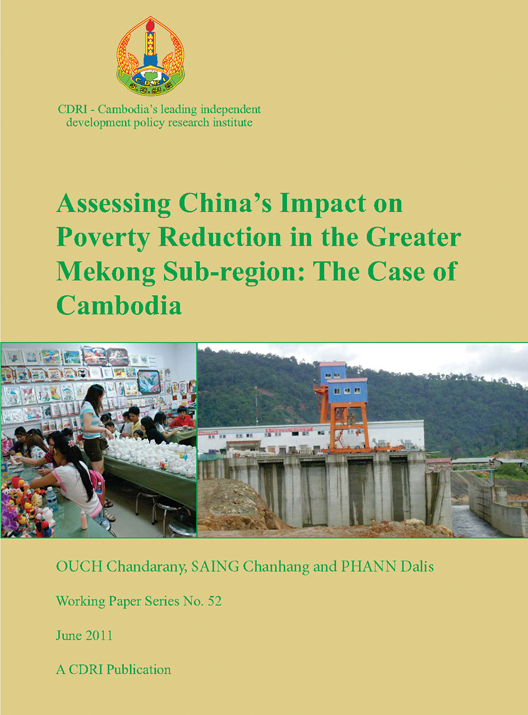
Assessing China’s Impact on Poverty Reduction in the Greater Mekong Subregion: The Case of Cambodia
This study investigates the multifaceted impact of China’s economic engagement on poverty reduction in Cambodia, focusing on trade, investment, and official development assistance (ODA). Using a framework developed by Jenkins and Edwards (2004), the paper analyses bilateral trade patterns, the role of Chinese foreign direct investment (FDI), an...
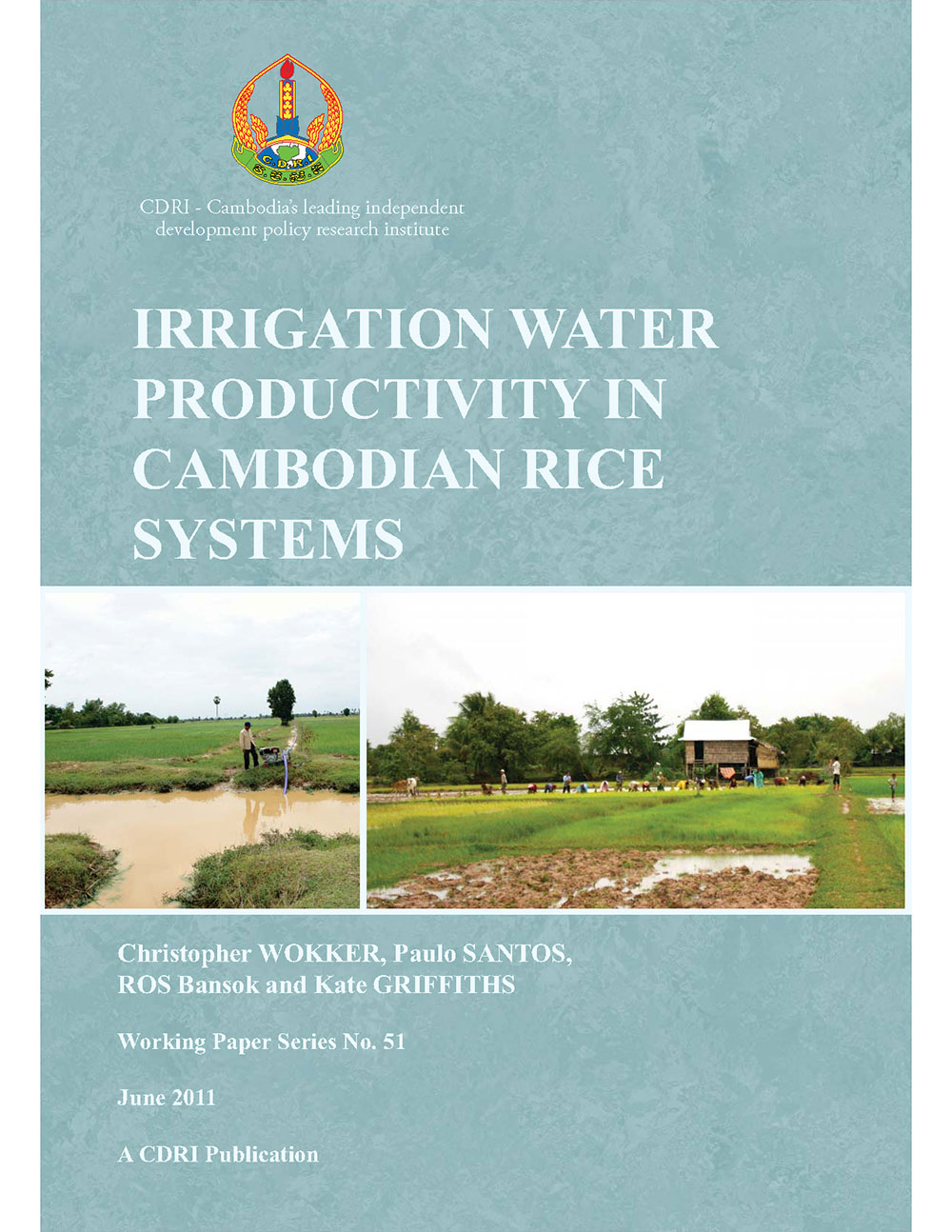
Irrigation Water Productivity in Cambodian Rice Systems
Cambodia’s economy is based largely on the agricultural sector which contributes 33 percent of the national GDP and employs more than 67 percent of the national labour force. Rice production is central to this sector: not only do the majority of Cambodia’s farmers depend directly and indirectly on the success of the rice crop each year, but bei...
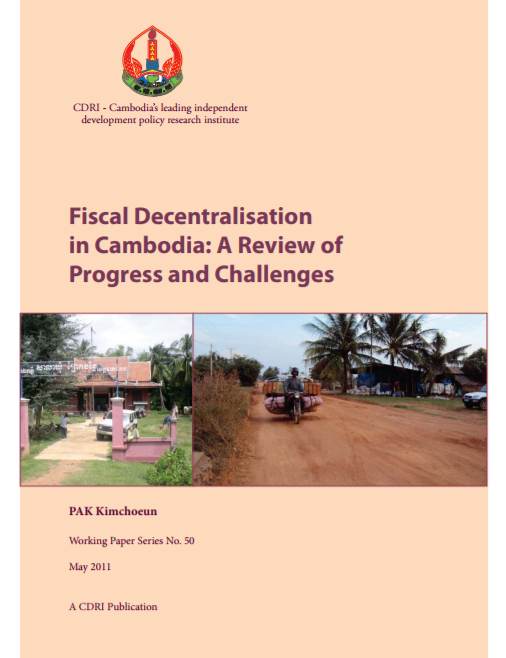
Fiscal Decentralisation in Cambodia: A Review of Progress and Challenges
To achieve democratic development, Cambodia’s next step towards fiscal decentralisation will focus on both institutional and service delivery reform at district level so as to strengthen the capacity of the sub-national administration and better link it to sectoral service delivery. To move forwards, fiscal decentralisation needs to be compreh...

Use of Hydrological Knowledge and Community Participation for Improving Decision-making on Irrigation Water Allocation
This study explores how hydrological knowledge and community participation can enhance decision-making in irrigation water allocation in Cambodia’s Stung Chrey Bak catchment. Conducted under the Water Resources Management Research Capacity Development Programme (WRMRCDP), the research integrates hydrological analysis with participatory learning...
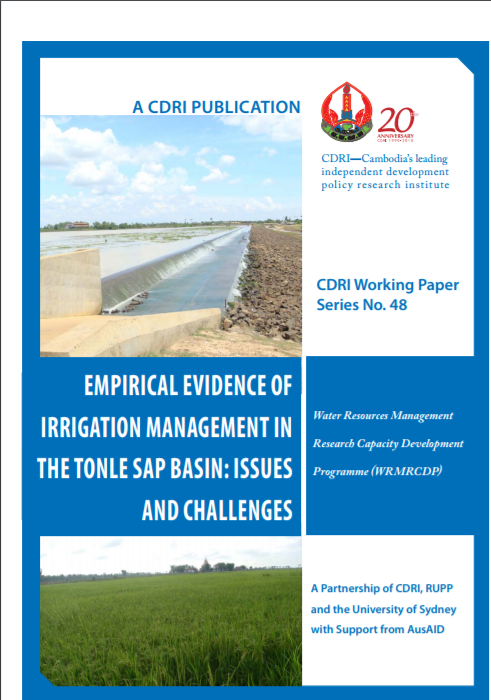
Empirical Evidence of Irrigation Management in the Tonle Sap Basin: Issues and Challenges
This working paper, published by the Cambodia Development Resource Institute (CDRI), presents an in-depth empirical assessment of irrigation management in Cambodia’s Tonle Sap Basin. It explores the critical role of irrigation in enhancing agricultural productivity in a country where 80 percent of the population relies on farming, primarily rice cu...
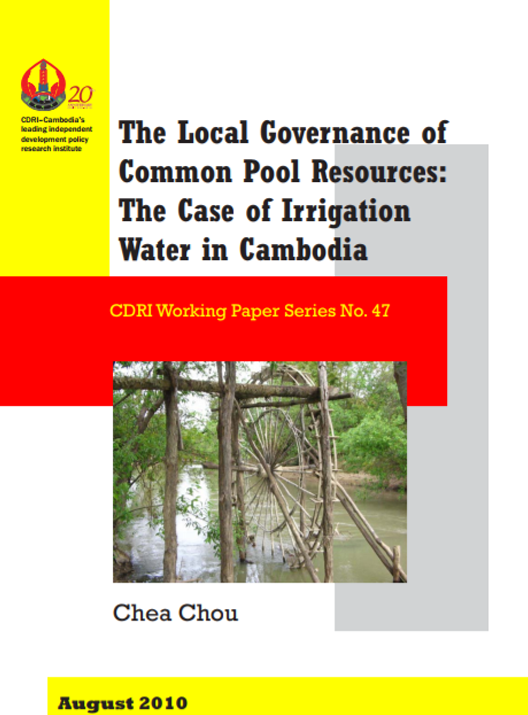
The Local Governance of Common Pool Resources: The Case of Irrigation Water in Cambodia
The study seeks out the factors that enable or constrain the good governance of common pool resources in Cambodia, using irrigation water as the case for analysis. It explores the dynamics of community-based natural resource management (CBNRM) and decentralised natural resource management (DNRM) from a local perspective and how these two approa...
